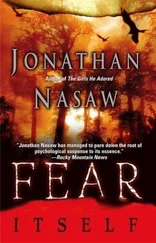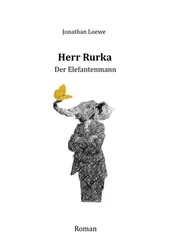“Ciao, Argo.”
“A good goodbye,” she said.
“Why?”
“It’s his first night in the new house,” Jacob said.
“New House?” Sam suggested.
“Maybe,” Jacob said. “Although it won’t be new for long.”
“We can change the name at that point,” Sam said.
“Like the Old-New Synagogue in Prague,” Julia said.
“Or move,” Benjy said.
“No more moving,” Jacob said.
“Gotta go,” Julia said to the kids.
The kids said good goodbyes to Argus, and then Julia knelt down to be face-to-face with him. “Take care, hairy man.”
She showed nothing, nothing that anyone but Jacob could see. But he could see. He couldn’t describe the giveaway — her face revealed nothing, her body revealed nothing, and there was nothing in her voice — but she gave it all away. He could only ever manage repression. She was capable of composure. And he was in awe of it. She did it for the kids. She did it for Argus. But how did she do it?
“OK,” Jacob said.
“OK,” Julia said.
“I know what we should do,” Benjy said.
“We should go,” Julia said.
“No. We should walk around the house with our eyes closed. Like we used to do on Shabbat.”
“How about next time you’re here?” Jacob said.
Sam stepped forward, into the space of his adulthood: “Dad, we can do this for him.”
And with that, Julia put down her bag. And Jacob took his hands from his pockets. No one watched anyone close their eyes, because that would have betrayed the spirit of the ritual. And no one peeked, because there was an instinct stronger than that instinct.
It was fun at first; it was funny. The nostalgia was sweet and untinged. The kids bumped into things on purpose, and made boy noises, and laughed a lot. But then, without anyone intending it, or noticing the shift, a silence bloomed. No one stopped talking, but there was no more talking. No one suppressed a laugh, but there was no more laughing. It went on for a long time — it felt like a different amount of time to each — the five of them like ghosts, or explorers, or newborns. No one knew if anyone’s arms were extended for protection. No one knew if anyone crawled, or did leg sweeps for obstacles, or ran a finger against a wall that he kept to his right at all times. Julia’s foot touched the leg of a folding chair. Sam found a light switch, pinched it between his thumb and forefinger, searched for the place between off and on. Max felt a thrill as his hands explored the stovetop. Julia opened her eyes; they were greeted by Jacob’s open eyes.
“I figured it out,” Benjy said, old enough to know that the world doesn’t disappear when you aren’t looking at it.
“What did you figure out?” Julia asked from across the room, not betraying him by looking at him.
“Wailing House.”
* * *
Jacob didn’t need anything when he made his final visit to IKEA. He’d just become so accustomed to IKEA satisfying his needs — hand towels for the top bathroom, a pot of lamb’s ears, freestanding acrylic picture frames — that he came to believe IKEA knew his needs better than he did, in the same way that he scheduled physicals because the doctor knew better than Jacob if Jacob was sick.
He picked up a bright red step stool, a garlic press, three toilet brushes, a drying rack for laundry, a drying rack for dishes, half a dozen felt storage boxes that would be perfect for some still-unknown purpose, a level (despite never once, in the previous forty-two years, having had need of a level), a doormat, two letter trays, oven mitts, several glass jars with airtight seals for the storage (and attractive display) of things like beans and lentils and split peas and popcorn and quinoa and rice, more hangers, LED light strings to connect the corners of Benjy’s room, pedal bins for each bathroom, a crappy umbrella that wouldn’t survive two storms but would survive one. He was among the textiles, spreading his fingers in a faux sheepskin, when he heard his name.
“Jacob?”
He turned to face a quite beautiful woman: warm brown eyes like old leather; a gold locket that drew his gaze to the top of her tight, unmottled cleavage; bracelets halfway down her hands as if she’d once been bigger. What was in that locket? He knew her, or had known her.
“Maggie,” she said. “Silliman.”
“Hi, Maggie.”
She smiled a smile to bring a thousand ships to harbor.
“Dylan and Sam went to nursery school together. Leah and Melissa’s class.”
“Right. Of course.”
“It’s been a decade,” she said kindly.
“No, I remember.”
“I thought I saw you. Way back in living rooms. But I lost you in the shuffle. And I wasn’t sure. But when I saw you here, I knew.”
“Ah.”
“I’m so relieved you’re home.”
“Oh, I don’t live here,” Jacob said, his reflexive flirtatiousness stimulating the thought that maybe she was the one whose husband had an aneurysm in the middle of the school year. “Just purchasing a few things for my actual home.”
She didn’t laugh. She was visibly moved. Was she the one for whom Julia brought over all those dinners?
“There was a list of everyone who went.”
“Went?”
“To Israel. They hung it outside the sanctuary.”
“I didn’t know that,” he said.
“I never used to pray. Never. But I started going. A lot of people did. Most mornings the sanctuary was full. Anyway, I looked at it every day.”
He thought, I can still tell the truth, but only now. After this, an awkward misunderstanding will be a lie that is worse than what it is concealing.
“I had no idea,” he said.
And there are smaller lies available (that I was turned back at the airport), and even half-truths (that there was a crisis at home that needed me even more than the crisis abroad).
“There were two lists, actually: one with the names of those who went to fight, and one with the names of those who died. Everyone on the second list was on the first list, obviously.”
“Well, it’s really nice to see you again,” Jacob said, hating the truth, hating the lie, and knowing nothing between.
“They never took them down. Maybe they’re supposed to be some kind of memorial? Or maybe even though the war is over, it somehow isn’t?”
“Hard to say.”
“What did you do?” she asked.
“What do you mean?”
“In Israel. Were you in logistics? Infantry? I don’t know the terminology.”
“I was in a tank unit.”
Her eyes widened.
“Being in a tank must have been terrifying.”
“Not as terrifying as being outside of one.”
She didn’t laugh. She brought her fingers to her mouth and said, “You didn’t drive it, did you?”
“No. That requires a lot of training and experience. I reloaded the ammunition.”
“Sounds grueling.”
“I guess it was.”
“And did you see battle? Is that the right way to put it? See battle? ”
“I don’t know how to put things, either. I was just a body. But yes, I saw battle. I imagine everyone did.”
The sentence advanced, but his mind stayed back with I was just a body.
“Did you ever feel that you were in grave danger?”
“I don’t know that I was feeling much of anything. It might sound clichéd, but there wasn’t time to be afraid.”
Without looking down, she took the locket between her thumb and forefinger. Her hand knew exactly where it would be.
“I’m sorry,” she said. “I’m asking too much.”
“No, that’s not it,” he said, seizing her offer of regret as an escape route. “I just have to get out of here in time to pick up Sam.”
“Is he well?”
“He’s doing great. Thank you for asking. And—?”
Читать дальше












